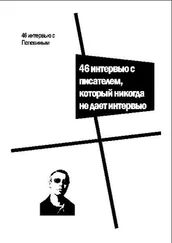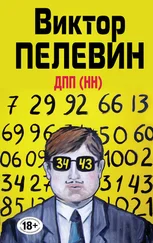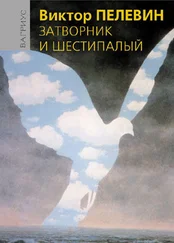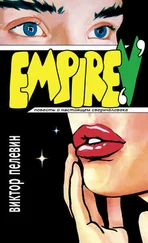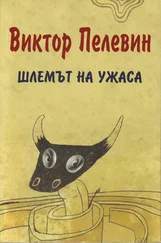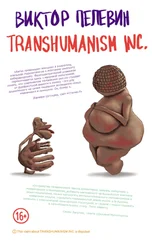Виктор Пелевин - Buddha's Little Finger
Здесь есть возможность читать онлайн «Виктор Пелевин - Buddha's Little Finger» весь текст электронной книги совершенно бесплатно (целиком полную версию без сокращений). В некоторых случаях можно слушать аудио, скачать через торрент в формате fb2 и присутствует краткое содержание. Жанр: Современная проза, на английском языке. Описание произведения, (предисловие) а так же отзывы посетителей доступны на портале библиотеки ЛибКат.
- Название:Buddha's Little Finger
- Автор:
- Жанр:
- Год:неизвестен
- ISBN:нет данных
- Рейтинг книги:5 / 5. Голосов: 1
-
Избранное:Добавить в избранное
- Отзывы:
-
Ваша оценка:
- 100
- 1
- 2
- 3
- 4
- 5
Buddha's Little Finger: краткое содержание, описание и аннотация
Предлагаем к чтению аннотацию, описание, краткое содержание или предисловие (зависит от того, что написал сам автор книги «Buddha's Little Finger»). Если вы не нашли необходимую информацию о книге — напишите в комментариях, мы постараемся отыскать её.
Buddha's Little Finger — читать онлайн бесплатно полную книгу (весь текст) целиком
Ниже представлен текст книги, разбитый по страницам. Система сохранения места последней прочитанной страницы, позволяет с удобством читать онлайн бесплатно книгу «Buddha's Little Finger», без необходимости каждый раз заново искать на чём Вы остановились. Поставьте закладку, и сможете в любой момент перейти на страницу, на которой закончили чтение.
Интервал:
Закладка:
I examined my surroundings. No more than twenty minutes had passed since the beginning of the rest hour, and my three companions were asleep. It seemed as though the entire building had fallen asleep together with them - in all that lime not a single person had passed the door of our ward. Carefully pulling off my blanket, I thrust my feet into my slippers, stood up and stealthily made my way over to the door.
‘Where are you going?’ came a whisper from behind my back.
I turned round. Maria’s eyes were focused keenly on me from the corner of the room. I could just see him through the narrow gap in the blanket in which he had wrapped himself from head to toe.
To the toilet.’ I said in a similar whisper.
‘Don’t play the brave soldier,’ whispered Maria, ‘the pot’s over there. If they catch you it’s a day in the isolation ward.’
‘They won’t catch me.’ I whispered in reply and slipped out into the corridor.
It was empty.
I vaguely remembered that Timur Timurovich’s office was located beside a tall semi-circular window, which looked straight out on to the crown of a huge tree. Far ahead of me, at the point where the corridor in which I was standing turned to the right, I could see bright patches of daylight on the linoleum. Crouching down, I crept as far as the corner and saw the window. I immediately recognized the door of the office by its magnificent gilt handle.
For several seconds I stood there with my ear pressed to the keyhole. I could not hear a sound from inside the office, and finally I ventured to open the door slightly - the room was empty. Several files were lying on the desk, but mine, which was the thickest (I remembered its appearance very clearly) was no longer in its former place.
I glanced around in despair. The dismembered gentleman on the poster returned my gaze with inhuman optimism; I felt sick and terrified. For some reason I felt that the orderlies were sure to enter the office at any moment. I was on the point of turning and running out into the corridor when I suddenly noticed a file lying open beneath other papers which were set out on the table.
‘A course of taurepam injections prescribed to precede the hydraulic procedures. Purpose - to block speech and motor functions with simultaneous activation of the psycho-motor complex
There were a few more words in Latin. Pushing these papers to one side, I turned over the cardboard sheet of the file beneath and read the words on it:
‘Case: Pyotr Voyd.’
I sat in Timur Timurovich’s chair.
The very first entry, on a few bound sheets of paper placed in the file, was so very old that the purple ink in which it had been written had faded, acquiring the kind of historical colour I hat one finds in d o c u m e n ‘I s which speak of people long since dead and buried. I was soon absorbed in what I read.’
In early childhood no signs of psychological deviance were de lected. He was a cheerful, affectionate, sociable child. Studied well nt school, enjoyed writing verse which did not demonstrate any particular aesthetic merit. First pathological deviations recorded at about fourteen years of age. Tendency to withdrawal and irritabil-it у observed, unrelated to any external causes. According to parents he ‘abandoned the family’; moved into a state of emotional alienation. Stopped associating with his friends - which he explains by the fact that they teased him about his Estonian surname Voyd «. Says that his teacher of geography used to do the same, repeatedly calling him an «empty shell». Began to make much slower progress at school At the same time began intensively reading philosophical literature - the works of Hume, Berkeley, Heidegger - everything which in one way or another deals with the philosophical aspects of emptiness and non-existence. As a result began to analyse the simplest events from a «metaphysical» point of view and declared that he is superior to his peers in «the heroic valour of life». Began frequently skipping classes, following which his family were obliged to contact a doctor.
‘Willingly enters into contact with the psychologist. Trusting. Concerning his inner world declares as follows: he has «a special conception of the world». The patient reflects «long and vividly» on all objects around him. In describing his psychological activity he declares that his thought «gnaws its way deeper and deeper into the essence of a particular phenomenon». Due to this feature of his thinking he is able to «analyse any question asked, each word and each letter, laying them out like an anatomical specimen», while in his mind he has a «ceremonial choir of numerous selves arguing with each other». Has become extremely indecisive, which he explains, in the first instance, by the experience of «the ancient Chinese» and secondly by the fact that «it is difficult to make sense of the whirlwind of scales and colours of the contradictory inner life». On the other hand, according to his own words, he is gifted with a «peculiar flight of free thought» which «elevates him above all other laymen». In this connection complains of loneliness and lack of understanding from those around him. The patient says there is no one capable of thinking «on his wavelength».
‘Believes he can see and feel things unattainable to «laymen». For instance, in the folds of a curtain or tablecloth, the patterns of wallpaper etc. he distinguishes lines, shapes and forms which express «the beauty of life». According to his words, this is his «golden joy», that is, the reason for which he daily repeats the «involuntary heroism of existence».
‘Regards himself as the only successor to the great philosophers of the past. Spends much time rehearsing «speeches to the people». Does not find placement in a psychiatric hospital oppressive, since he is confident that his «self-development» will proceed by «the right path» no matter where he lives.’
Someone had crossed out several purple phrases with a thick blue pencil. I turned the page. The next text was titled ‘organoleptic indications’, and was obviously burdened with a superfluity of Latin terms. I began rapidly leafing through the pages. Those written in purple were not even bound into the file - they had most probably slipped in there by accident from some other file. A page had been inserted in front of the following set of papers, which was the thickest, and on it I read the words: THE PETERSBURG PERIOD
(Provisional title taken from the most persistent feature of delusions. Repeated hospitalization.)
But I had no chance to read a single word from the second part. I heard Timur Timurovich’s voice in the corridor, exas-peratedly explaining something to someone else. Rapidly returning the papers on the desk to approximately the same position in which they had been lying before my arrival, I dashed over to the window - the idea occurred to me of hiding behind the curtains, but they hung almost flush against the glass.
Timur Timurovich’s rumbling voice sounded very close to the door by this time. He seemed to be giving one of the orderlies a dressing-down. Stealing over to the door, I glanced through the keyhole. I could see no one - the owner of the office and his companion were apparently standing several yards away round the corner.
The action I took then was in large measure instinctive. I quickly left the office, tip-toed across to the door opposite and dived into the dark and dusty broom-cupboard behind it. I was only just in time. The conversation round the corner stopped abruptly and a second later Timur Timurovich appeared in the narrow space which I could observe through the crack of the door. Cursing quietly to himself, he disappeared into his office. I counted to thirty-five (I do not know why it was thirty-five - nothing in my life has ever been associated with that number), then darted out into the corridor and ran noiselessly back to my ward.
Читать дальшеИнтервал:
Закладка:
Похожие книги на «Buddha's Little Finger»
Представляем Вашему вниманию похожие книги на «Buddha's Little Finger» списком для выбора. Мы отобрали схожую по названию и смыслу литературу в надежде предоставить читателям больше вариантов отыскать новые, интересные, ещё непрочитанные произведения.
Обсуждение, отзывы о книге «Buddha's Little Finger» и просто собственные мнения читателей. Оставьте ваши комментарии, напишите, что Вы думаете о произведении, его смысле или главных героях. Укажите что конкретно понравилось, а что нет, и почему Вы так считаете.

